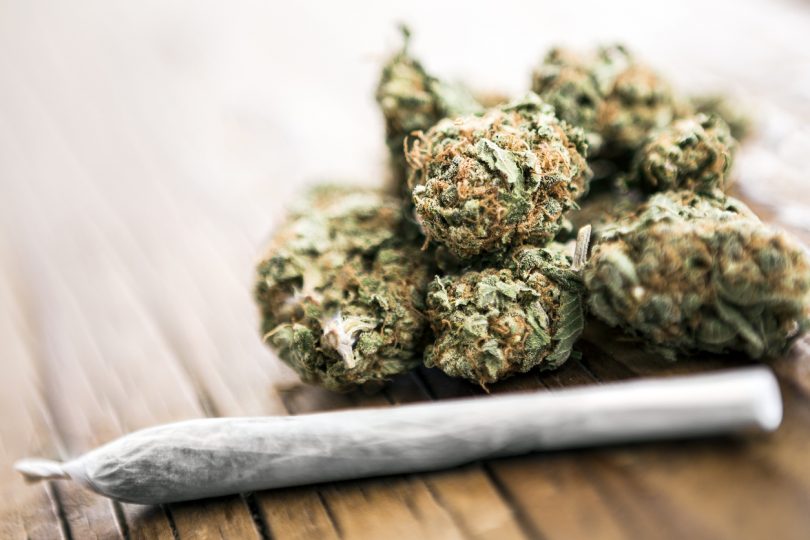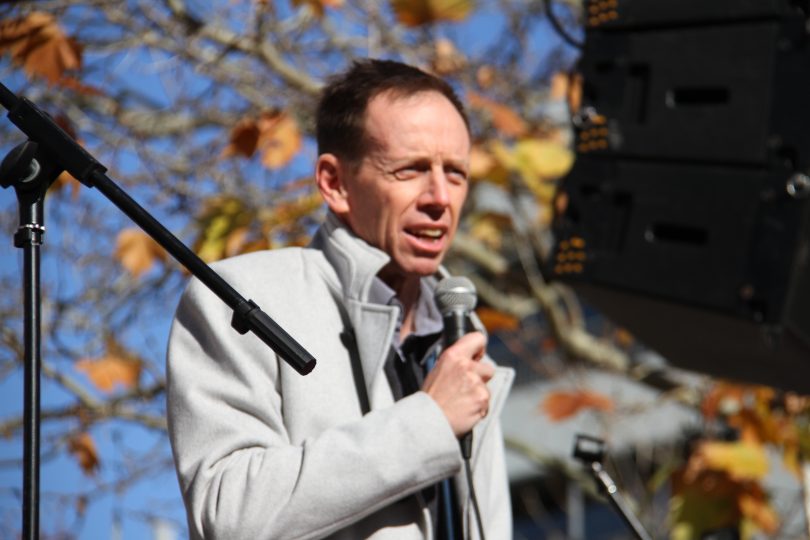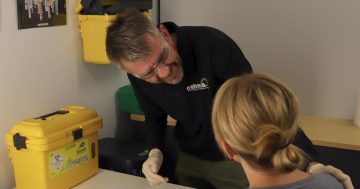
Cannabis is now legal in the ACT, however federal law has left a legal limbo in the capital. Photo: File.
In an Australian first, Canberrans can now possess and cultivate cannabis for personal use, as legislation comes into effect in the ACT today.
The new laws allow people to possess 50 grams of dry cannabis and grow up to two plants, with a maximum of four plants per house. The limit is increased to 150 grams for fresh cannabis.
However, confusion remains over how the laws will be enforced. Federal Attorney-General Christian Porter has previously stated that Federal laws will still apply, where possession of the plant remains illegal.
However, Chief Minister Andrew Barr has said the ACT legislation will provide a legal defence for those charged under Commonwealth laws.
The efficacy of that argument is unclear as Federal laws take precedence over state laws in the Constitution. As a Territory, the ACT also operates under a different set of legal principles than other Australian states and the Australian Federal Police provide policing services here.
Around three-quarters of Australians believe the possession of cannabis should not be a criminal offence, according to the National Drug Strategy Household Survey (2016), while an ACT Government public opinion survey in 2018 found that more than half of Canberrans wanted the personal use of cannabis to be legalised.
Melinda Lucas from the Drug and Alcohol Foundation says the approach should be about harm minimisation and getting people out of the criminal justice system.
“The Alcohol and Drug Foundation supports drug law reform, and that is a broad term that looks at ways to minimise harm from alcohol or other drugs. One of those harms may be the legal status of drugs,” she told Region Media.
“The cannabis law change in the ACT is something that we have not seen before, so there is not a great deal of evidence at the moment to determine whether legalising cannabis is the best way forward.
“A really important part of this is being to roll out health advice so that people remain aware that cannabis is a psychoactive substance and it does come with a range of harms and risks that people need to be aware of.”
Critics who support a ‘just say no’ approach may also be wasting an opportunity to intervene with the user and provide valuable information that could save a life, Ms Lucas said.
“The evidence is pretty clear internationally that changing the way that criminal or civil penalties apply can impact the harm that it is causing people,” she said.
“People have been using drugs since time immemorial. Why they choose to do it is an age-old question as well. But we do have a social responsibility to do our best.
“If we know we can keep people a little bit safer by giving them good advice then that is not necessarily a bad thing.
“It does not mean that you are condoning the behaviour, it just means that you are saying ‘we prefer that you did not do this, but if you are going to do it here is what you can do to try and make you and the rest of the community safer’.”

Greens spokesperson for drug law reform Shane Rattenbury says the new law is an important step forward. Photo: File.
However, being an Australian-first, it is unclear what effects the new legislation could have on usage rates in the ACT.
“Cannabis is the most-used illicit substance nationally. Because this model has not been put in place in Australia before, we do not have a baseline yet to make a determination about whether or not we will see an increase of usage in the ACT,” Ms Lucas said.
“It will be a little bit of a watch and learn.”
Greens MLA Shane Rattenbury and spokesman for drug law reform said this legislation is not an end in itself.
“While (the) Bill is an important step forward, there’s still work to be done to ensure that cannabis use is treated as a health issue, not a criminal issue,” he said after the Bill passed the Legislative Assembly.
“Together with our Federal Greens colleagues, we’ll continue to campaign for legalisation at a national level to allow for the supply and sale of cannabis in a nationally regulated market, something the ACT is unable to do on our own.”
The impact of the legislation will be reviewed after three years in accordance with an amendment moved by the Greens.
Other Greens proposals, including increased limits for people using cannabis for medicinal purposes and the establishment of an independent cannabis advisory council, were rejected by Labor and the Liberals.





















